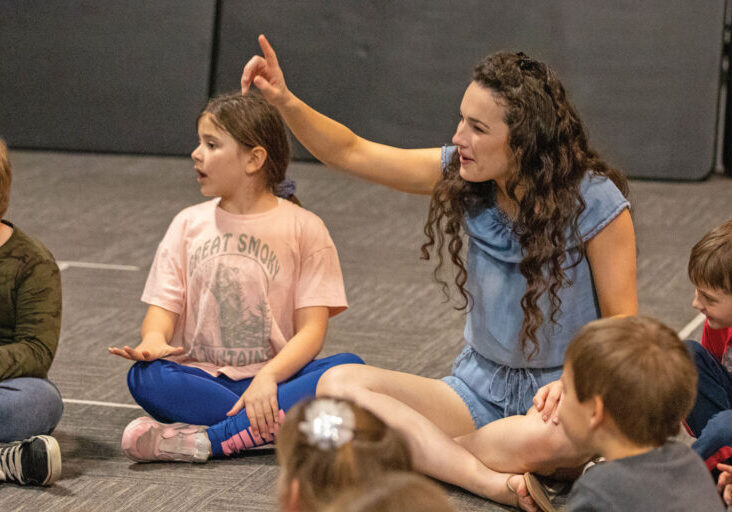
From the time children enter kindergarten, homework is a fact of life. Young children often find that doing homework is fun. By the time students reach third or fourth grade, however, homework may feel like drudgery. Friction between parents and children regarding homework is common. In fact, homework tends to create more parent/child conflict than any other school-related issue.
Some parents report they feel guilty because they are so busy that they don’t have time or energy to pay attention to their children’s homework. Others say that they nag their children about completing their work. When parents do assist, what starts out as a positive experience often ends up in angry outbursts. Some parents even wonder why homework is necessary, particularly in the early grades.
“Taking Center Stage – Act II,” a California Department of Education publication, lists three primary goals for homework:
- To give students practice that will reinforce learning.
- To give students feedback based on teacher review of their homework.
- To complete unfinished classwork.
The document goes on to report that the ultimate purpose of homework is to improve learning. Furthermore, the assignments should be meaningful and reinforce the students’ mastery of the course content.

Photos by Tracey Hedge, Firefly Mobile Studios, firefly2u.com
So, what is a reasonable amount of homework to expect? Dr. Harris Cooper, a respected researcher in developmental psychology and educational policy, recommends 10 to 20 minutes of homework per night for first graders with an additional 10 minutes per night with each successive grade level. The National Parent Teacher Association supports this policy. Even with these guidelines, many children take much longer than the recommended time to complete their homework. This, of course, increases parent/child frustration.
There are steps both students and parents can take to relieve tension around homework. Developing and committing to an effective homework plan leads to positive results. The steps may not all be easy to follow, but once implemented, homework will be less stressful for everyone. Commit for two weeks. Keep what works and tweak what doesn’t. Don’t give up!
- First, communicate. Sit quietly with your child and discuss the need to make homework less challenging. Say something like, “I know you don’t like homework, but it’s not going to go away. Let’s work together to make it easier.”
- Do homework at essentially the same time each day. When the designated time approaches, your child’s body’s “clock” will begin to prepare him for a time of concentration. If he attends after-school care, homework may be done there. Regardless of where homework is completed, you will need to look it over before he returns it to school.
- Do homework in the same place each day. Whether your child works at his desk in his bedroom, at the kitchen table, or with a pillow on the floor, using a consistent place says to his body, “Oh, yes. This is a workspace. Now it’s time to settle down and work.”
- Prepare for homework. Have a snack or drink of water, and use the bathroom before starting. This helps to lessen distractions once your child has started working.
- • Gather all necessary materials. All books, sharpened pencils and other supplies need to be in the homework area before beginning. Not having them available provides an excuse for not staying on task.
- Ask questions. Before he begins his homework, have your child look it over and ask any necessary questions. Provide the information he needs so that questions don’t become a disruption.
- Use a timer. Timers serve as motivators for many children. They see how long they have worked and how much time they have left before a break. If a timer works for your child, let him set it himself. Unless it is distracting, he needs to have it in easy sight.
- Take breaks. Building in breaks helps your child focus more fully during the work time. Young children need a break of 3 to 5 minutes for every 10 minutes of work. Third and fourth graders can work for 20 minutes and older children for 45 minutes before breaks. Breaks are for stretching, taking a drink of water, using the bathroom, and asking questions about the homework; they are not a time for playing or watching TV.
- Recognize special situations. If your child has difficulty sustaining focus or has other learning difficulties, look at the homework together and decide how much can be done in a five-minute segment. Set a timer and leave while he does the work. After 5 minutes, return. If the work is complete, acknowledge him and check it. Negotiate another five minutes of work. If the work has not been accomplished, simply reset the timer with a statement such as, “I know you’ll have the work done when the timer goes off,” then leave.
- Acknowledge. When the homework is compete, acknowledge the achievement. Even if it has not been done to your child’s best ability, find something to address positively. You might say, for example, “I like the way you finished your homework. I know that next time you will use neater handwriting.”
While consistently following an effective homework strategy may not work all of the time, you can expect it to work most of the time. With commitment and consistency, homework will take less time and cause less friction, and the positive effects will benefit you and your child.
Posted in: Education
Comment Policy: All viewpoints are welcome, but comments should remain relevant. Personal attacks, profanity, and aggressive behavior are not allowed. No spam, advertising, or promoting of products/services. Please, only use your real name and limit the amount of links submitted in your comment.
You Might Also Like...

Whittenberg Country School – An Old-Fashioned School In The 21st Century
Zach Whitten’s day-to-day operations at Whittenberg Country School look like a scene from Louisa May Alcott’s Jo’s Boys. Every school morning is awash with an exciting spectrum of possibilities for […]

Living History at Chapman Elementary School Library – Growing Compassion Through Literacy and History
Two dozen faces at Chapman Elementary School Library gazed in wonder as 98-year-old Ingrid Nielsen brought literature to life right before their eyes. “I was born and raised in a […]

Simple Science Experiments: Simply Shocking!
Are you ready for a challenge? Create a mixture of salt and pepper – your task will be to separate them again! How can you do it? Mix the two […]

Hope for the Future at Chico’s Hope Academy
Hope for future generations rests on the strengths of individuals and those strengths are most fully developed with individualized attention and learning. Small class sizes are just one of the […]



